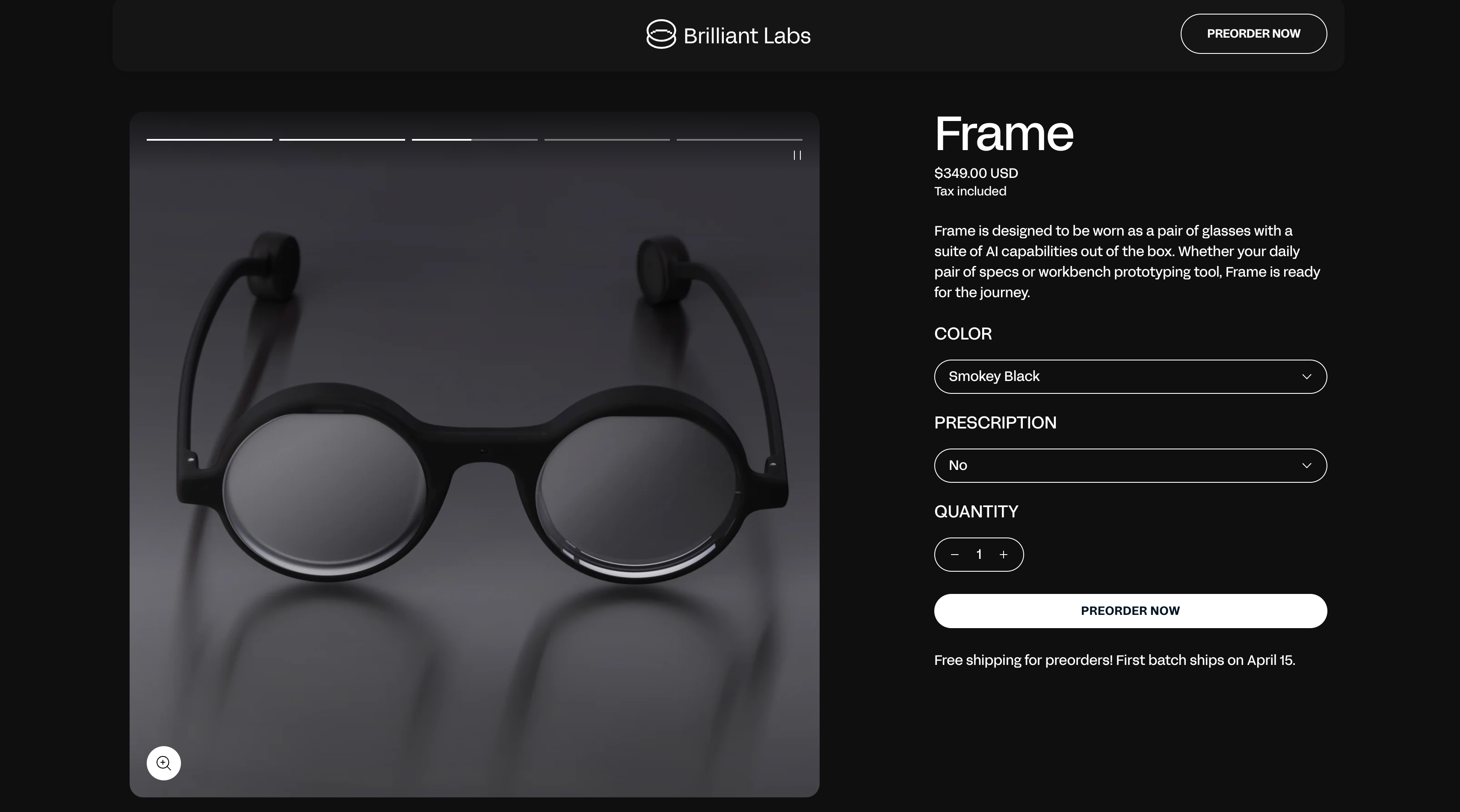Singapore-based smart lenses start-up Brilliant Labs has seized the spotlight with its latest innovation, Frame smart glasses. Breaking away from conventional approaches to augmented reality (AR) and smart eyewear, Brilliant Labs’ Frame introduces a new era of wearable technology, banking on the power of generative AI to redefine the user experience. Founded in Hong Kong in 2019, Brilliant Labs has positioned itself at the forefront of the smart eyewear trend, challenging industry giants with its innovative approach.
Brilliant Labs’ Frame smart glasses – Redefining smart eyewear
Singapore-based start-up Brilliant Labs has entered the arena of smart eyewear with the launch of its Frame smart glasses, boasting a unique fusion of style and functionality. Unlike conventional AR glasses, Frame stands out with its integration of generative AI technology, spearheaded by the custom AI assistant Noa. Developed to address the shortcomings of previous AR attempts, Noa harnesses the power of large language models (LLMs) to provide users with a seamless and purposeful experience. With Frame, Brilliant Labs aims to tap into a burgeoning market expected to soar with the entry of tech giants like Apple.
The Frame smart glasses offer users a multifaceted experience, combining the convenience of wearable technology with the sophistication of generative AI. By integrating Noa, users can seamlessly access a plethora of information and services, ranging from image generation to language processing. This innovative approach marks a significant departure from traditional AR glasses, which often struggled to deliver practical applications beyond novelty features.
Brilliant Labs’ commitment to sustainability sets it apart in the competitive landscape of smart eyewear. By leveraging open-source technology and off-the-shelf components, the company minimizes its environmental footprint while maximizing accessibility. This ethos aligns with evolving consumer preferences for ethically conscious products, further bolstering the appeal of Frame smart glasses among eco-conscious consumers.
The Chinese competition – Diverse approaches to smart eyewear
While Brilliant Labs leads the charge with its Frame smart glasses, Chinese companies showcase a diverse array of approaches to smart eyewear at events like CES. RayNeo, maker of the X2 glasses, highlights its advanced micro-LED technology and anime-style virtual assistant, catering to different consumer preferences. Meanwhile, Beijing-based Xreal, backed by tech giants like ByteDance and Tencent Holdings, aims for a more mainstream appeal with its Air 2 line of products, offering features reminiscent of the Apple Vision Pro. Despite varied strategies, the race for dominance in the smart eyewear market intensifies as companies vie for consumer attention.
RayNeo’s X2 glasses represent a unique fusion of cutting-edge technology and cultural appeal. By incorporating anime-style virtual assistants and sleek design elements, the company targets younger demographics seeking both functionality and style in their wearable devices. This strategic approach reflects a nuanced understanding of consumer preferences, positioning RayNeo as a formidable contender in the competitive smart eyewear market.
In contrast, Xreal’s Air 2 line of products emphasizes practical applications and user experience enhancements. With features such as gaming support, film viewing capabilities, and extended desktop functionality, Xreal targets professionals and entertainment enthusiasts alike. By catering to diverse use cases, the company seeks to carve out a niche in the market previously dominated by industry giants like Apple and Meta Platforms.
As Brilliant Labs and its competitors strive to redefine the landscape of smart eyewear, one question looms large: Will generative AI truly be the killer app for smart glasses, as Brilliant Labs’ CEO Bobak Tavangar envisions? With Frame leading the charge in leveraging this groundbreaking technology, the future of wearable technology hangs in the balance, poised for further innovation and disruption. Will consumers embrace the seamless integration of AI into their everyday lives, or will challenges and competition hinder the widespread adoption of smart glasses? Only time will tell as the journey towards technological advancement continues.





